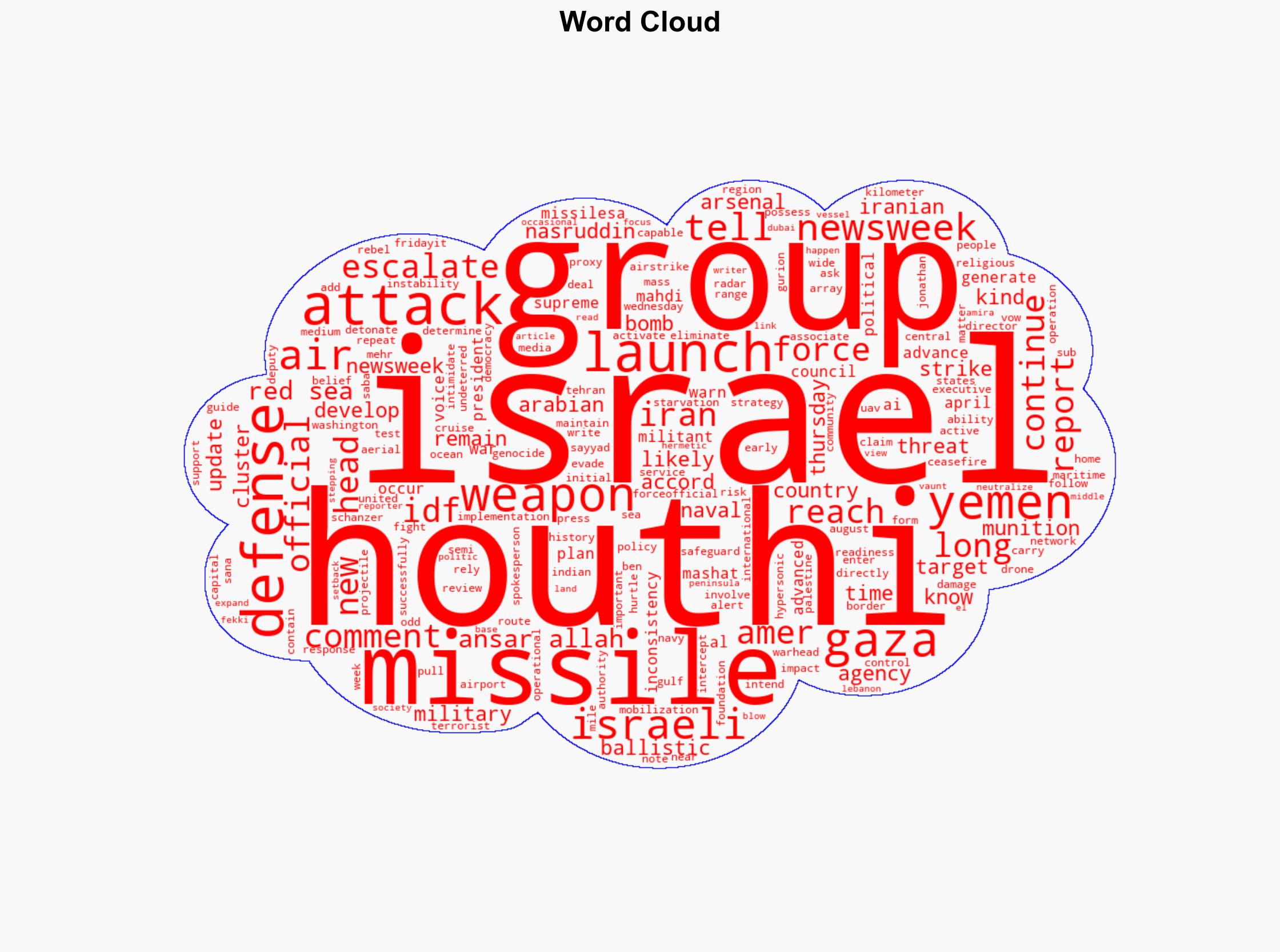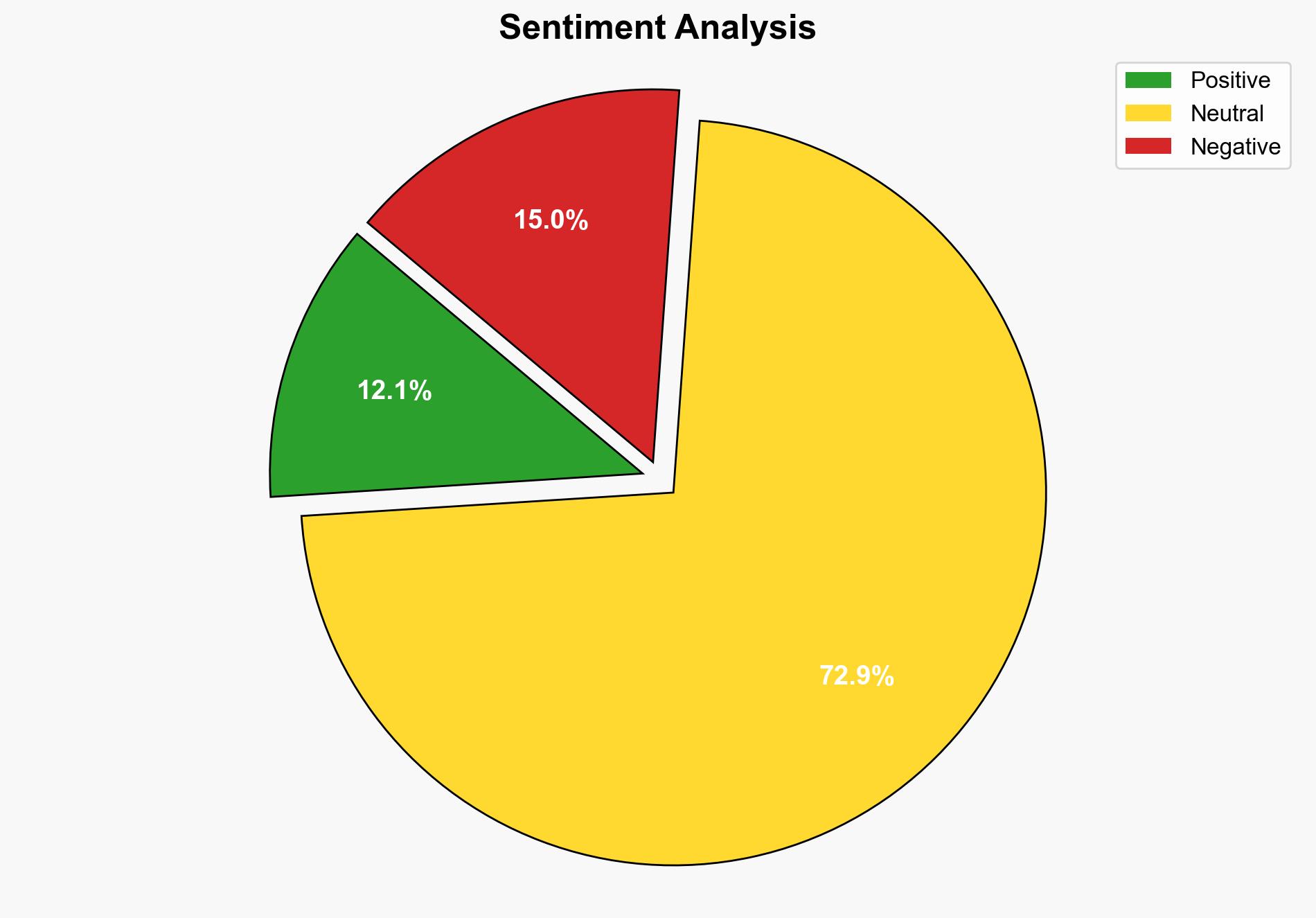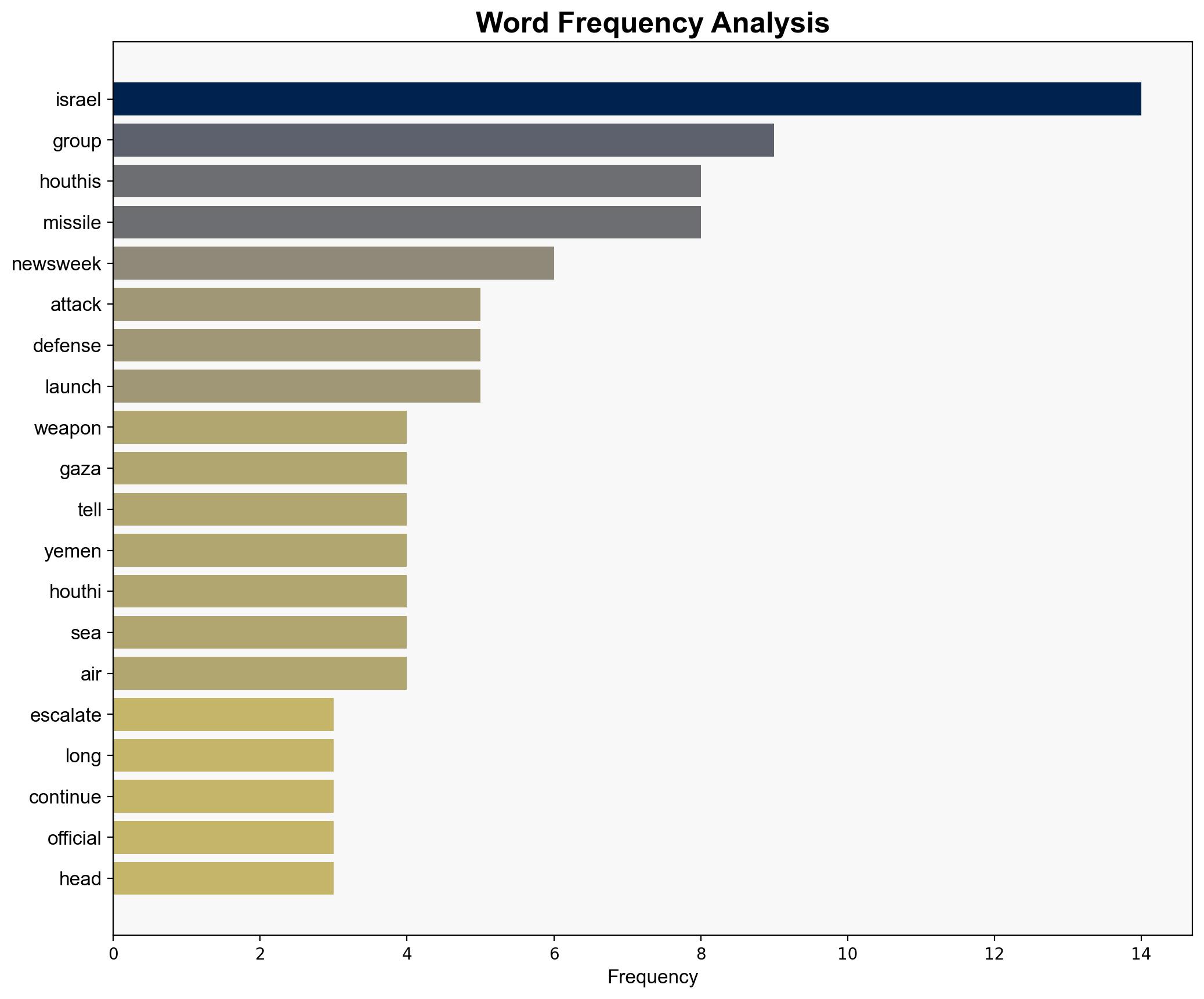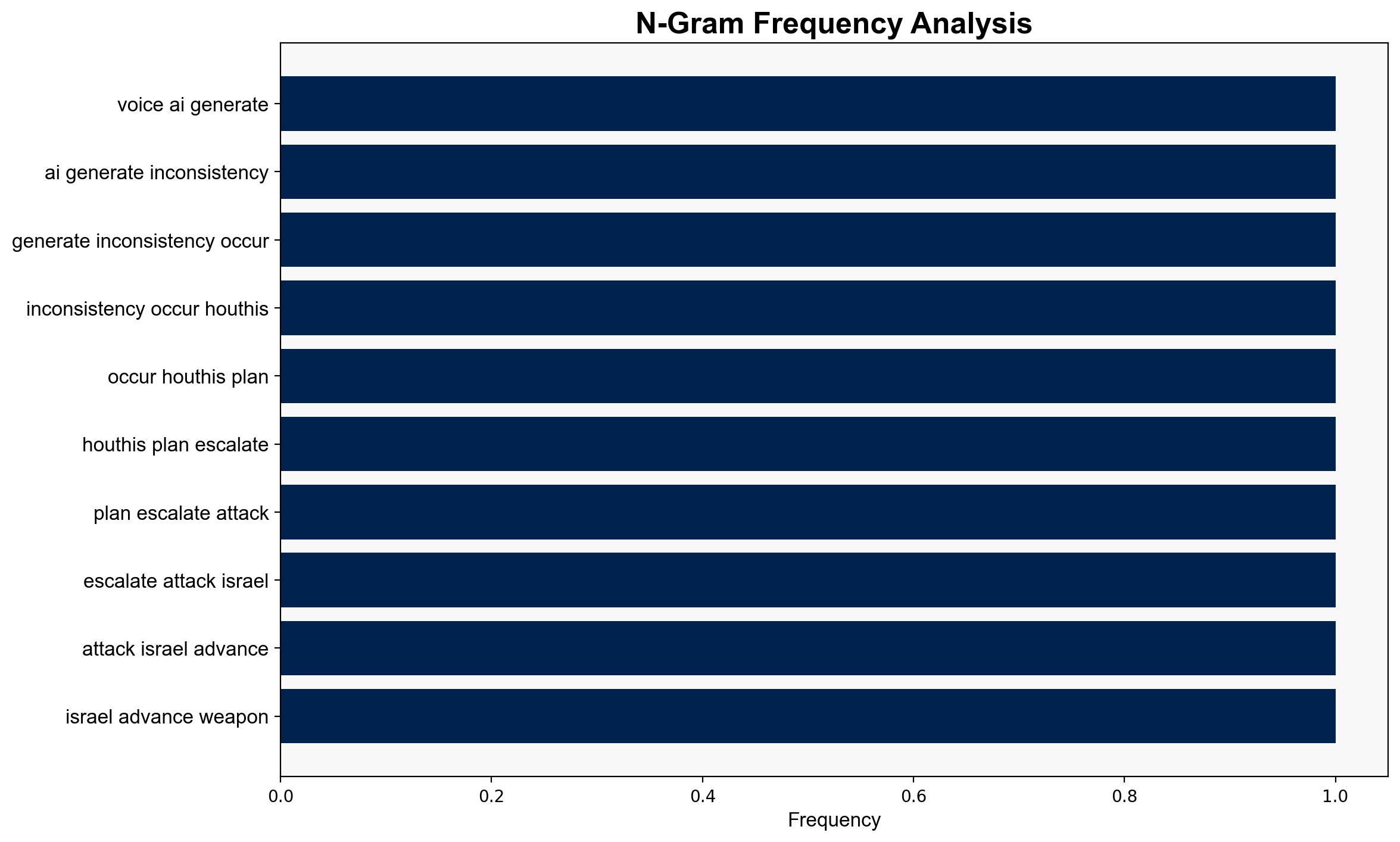Houthis Threaten Escalation With New Weapon – Newsweek
Published on: 2025-08-28
Intelligence Report: Houthis Threaten Escalation With New Weapon – Newsweek
1. BLUF (Bottom Line Up Front)
The Houthis’ potential escalation with advanced weaponry poses a significant threat to regional stability, particularly concerning Israel. The most supported hypothesis is that the Houthis, backed by Iran, are strategically enhancing their military capabilities to exert pressure on Israel and its allies. Confidence level: Moderate. Recommended action: Increase regional surveillance and strengthen defense collaborations with allies.
2. Competing Hypotheses
1. **Hypothesis A**: The Houthis are escalating their military capabilities with advanced weapons to directly challenge Israel and its allies, aiming to shift the regional power balance in favor of Iran.
2. **Hypothesis B**: The Houthis’ threats are primarily rhetorical, intended to bolster their image and leverage in negotiations, with limited actual capacity to sustain prolonged military engagement against Israel.
Using the Analysis of Competing Hypotheses (ACH), Hypothesis A is better supported due to the reported development and testing of advanced weaponry, such as the Sayyad naval cruise missile and hypersonic ballistic missiles, and the strategic alignment with Iran’s broader regional objectives.
3. Key Assumptions and Red Flags
– **Assumptions**: It is assumed that the Houthis have the technological and logistical support from Iran to develop and deploy advanced weaponry effectively.
– **Red Flags**: The reliability of the Houthis’ claims about their weapon capabilities is uncertain. There is a potential for exaggeration or misinformation to enhance their perceived threat.
– **Blind Spots**: The extent of Iran’s direct involvement and the Houthis’ actual operational readiness remain unclear.
4. Implications and Strategic Risks
The escalation could lead to increased military engagements in the region, affecting maritime security in the Red Sea and Gulf of Aden. There is a risk of broader regional conflict involving Iranian proxies, potentially disrupting global oil supply routes. Cyber and psychological warfare tactics may also be employed to destabilize adversaries.
5. Recommendations and Outlook
- Enhance intelligence-sharing and defense coordination with regional allies, particularly focusing on missile defense systems.
- Prepare for potential cyber threats targeting critical infrastructure in response to escalations.
- Scenario-based projections:
- **Best Case**: Diplomatic interventions lead to de-escalation and renewed ceasefire agreements.
- **Worst Case**: Full-scale regional conflict involving multiple state and non-state actors.
- **Most Likely**: Continued low-intensity conflicts with sporadic escalations and retaliatory strikes.
6. Key Individuals and Entities
– Mahdi al-Mashat
– Nasruddin Amer
– Jonathan Schanzer
7. Thematic Tags
national security threats, cybersecurity, counter-terrorism, regional focus




